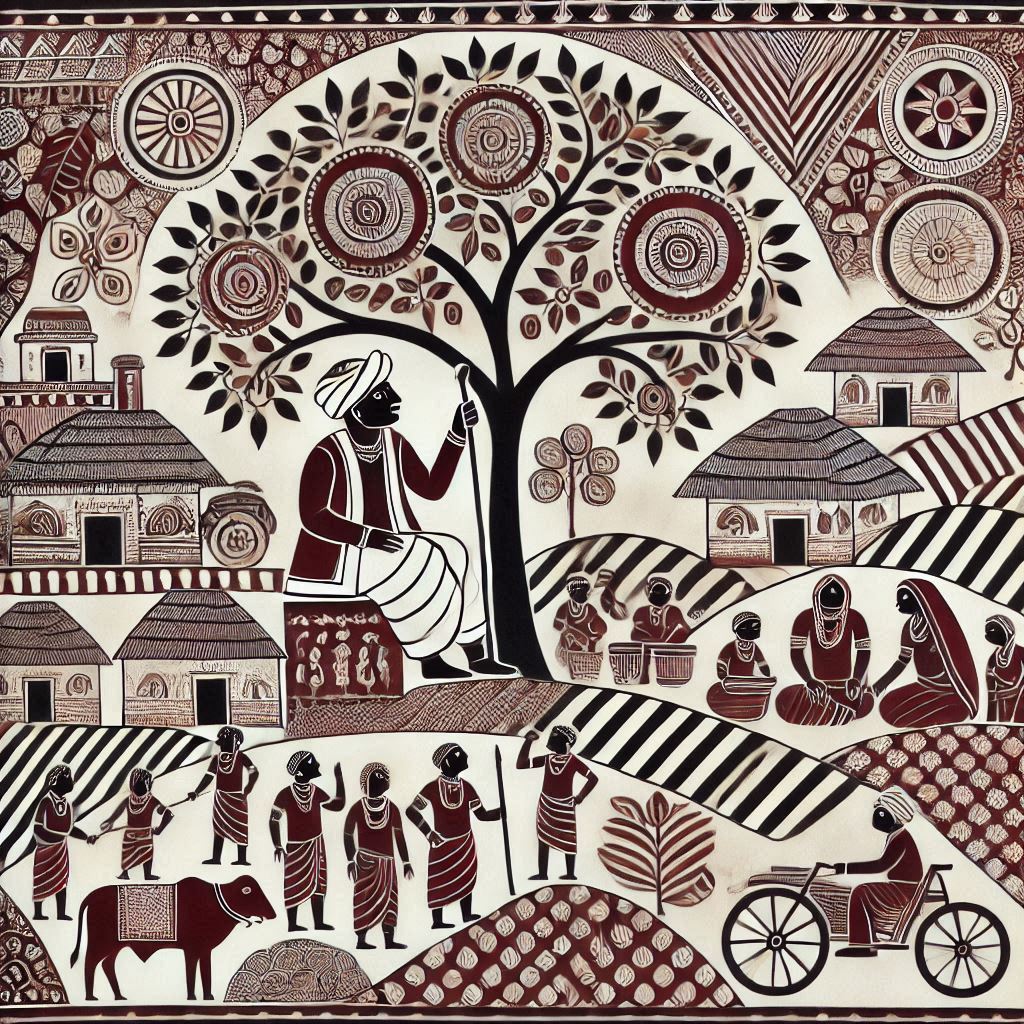From Ancient Wisdom to Modern Success: What 30 Years of Studying India's Indigenous Management Systems Taught Me About Leadership

It was a chance encounter with a lecture by an eccentric Swamiji that changed the trajectory of my professional life. As a young management student in the early 1990s, steeped in Drucker, Tom Peters, and Edward de Bono, I found myself questioning the status quo: Why were we studying only Western concepts and case studies for success in management? Why was there nothing about the Indian context?
This question would lead me on a thirty-year meandering journey through India's rich heritage of management wisdom, from ancient scriptures to living communities, from corporate boardrooms to tribal councils. Looking back now, I realize how this journey has shaped not just my understanding of management, but of India itself.
The Early Years: From Scriptures to Streets

The '90s were a time of transformation in India. As liberalization swept through our economy, we witnessed an influx of Western and Japanese management concepts. Total Quality Management, Kaizen, Just-in-Time, BPR – these became the buzzwords in our manufacturing sector. The IT boom brought its own set of frameworks: ISO standards, CMM models, PMBOK guidelines. I was right in the thick of it, designing and implementing these systems as a corporate consultant.
But parallel to this mainstream current, I discovered a different stream of knowledge. Working with a small but dedicated group of thinkers, I delved into management lessons from the Bhagavad Gita, Arthashastra, Thirukkural, and Mahabharata. Two distinct schools of thought emerged: the Aurobindo school, which merged modern psychology with yoga sutras, and the Vivekananda school, which drew from Karma Yoga and Advaita Vedanta.
The Turning Point: Beyond the Books
 A pivotal moment came when I attended a conference in Hyderabad, presided over by Swami Ranganathananda. Here, I first heard about the Swadhyaya movement in Maharashtra and the legendary Dabbawallas of Mumbai – living examples of indigenous management models that worked at scale. These weren't theoretical constructs but practical, profitable institutions impacting millions of lives.
A pivotal moment came when I attended a conference in Hyderabad, presided over by Swami Ranganathananda. Here, I first heard about the Swadhyaya movement in Maharashtra and the legendary Dabbawallas of Mumbai – living examples of indigenous management models that worked at scale. These weren't theoretical constructs but practical, profitable institutions impacting millions of lives.
Then came my exposure to Dharampal's work in 2000, which revolutionized my understanding. Two critical insights emerged:
- The management wisdom in our ancient scriptures wasn't theoretical – it was codified from actual practices in society. Most of this practical knowledge existed in local languages, passed down through oral traditions
Living Laboratories of Management
My research in Madurai opened up a fascinating world of community institutions.  I discovered the magamai (community tax system), thalakattu (family-based voting), uravinmurai (clan networks), and the remarkable neerkattis (traditional irrigation managers). These weren't just cultural curiosities – they were living, breathing management systems.
I discovered the magamai (community tax system), thalakattu (family-based voting), uravinmurai (clan networks), and the remarkable neerkattis (traditional irrigation managers). These weren't just cultural curiosities – they were living, breathing management systems.
In the tsunami-affected regions, I studied how communities managed saline water intrusion and the traditional odavi boat-building techniques. These experiences showed me something profound: here were management principles far more nuanced than what I'd studied in business school, practiced by communities who might not be formally educated but were incredibly sophisticated in their organizational abilities.
Global Perspectives, Local Wisdom
My journey took an international turn when I began interacting with indigenous communities worldwide, particularly Native Americans in the USA and South America. Their approaches to community management and resource governance offered fresh perspectives on our own traditions.
Perhaps the most enriching experience came from my eight-year involvement with Auroville, the international community of 3,000 people from 50 countries. Managing the Sustainable Livelihood Institute there taught me how ancient wisdom could be applied to modern challenges. Watching this diverse community handle conflicts, make decisions, and build consensus using tools ranging from yoga to silence, from trust to music, was a masterclass in alternative management approaches.
Lessons for Modern Leaders
What I've learned over these three decades is that India's management wisdom isn't just about ancient texts or traditional practices – it's about living principles that can transform how we lead and organize today. Whether you're a corporate executive, a social entrepreneur, or a community leader, there are invaluable lessons to be found in these indigenous management systems:
- The power of community consensus over top-down decision-making
- The importance of ethical frameworks in governance
- The role of diverse forms knowledge in sustainable resource and people management
- The effectiveness of organic, locally evolved solutions over imported models
As India takes its place on the global stage, perhaps it's time we looked more closely at our own management heritage. Not as a replacement for modern practices, but as a complement that can enrich our understanding of what effective management truly means.
After all, any system that has successfully managed communities for centuries must have something to teach us about sustainability, resilience, and human organization. These aren't just lessons from the past – they're blueprints for our future.
I am working on the script of the book on this subject. Leave a comment in case you are interested to receive further updates on the book work and seminar on the subject with your contact details or write to chief@samanvaya.com to reach me directly.
Add new comment